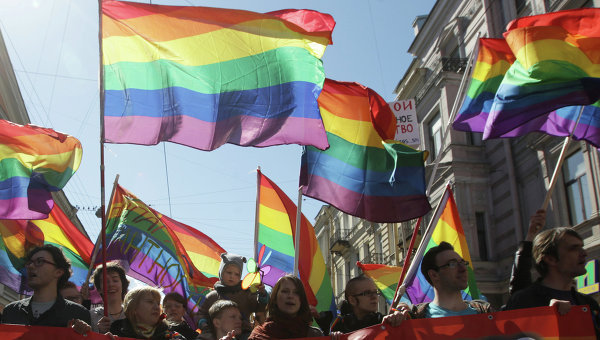ST. PETERSBURG, June 26 (RAPSI) - The Federation Council, Russia's upper house of parliament, on Wednesday approved a bill banning foreign same-sex couples from adopting Russian children, already adopted by the State Duma, Russia's lower house of parliament.
The new legislation was supported unanimously, with 131 votes.
The amended Family Code will prohibit the adoption of Russian children by foreign same-sex couples and by single individuals in countries that have legalized same-sex marriage.
The initiative came after France passed controversial legislation allowing gay couples to marry and adopt children.
Russia has an international adoption agreement with France.
At present, same-sex marriages are allowed in 13 countries - the Netherlands, Belgium, Spain, Canada, South Africa, Norway, Sweden, Portugal, Iceland, Argentine, Denmark, Brazil, and France. Columbia, Uruguay and New Zealand have passed LGBT marriage legislation, which will come into force by the end of this year. Although same-sex marriages cannot be performed in Israel and Mexico, these two countries nevertheless recognize same-sex marriages performed in other countries. Gay marriages are also allowed in 13 states in the United States.
On June 4, President Vladimir Putin said he would sign a law banning adoptions by same-sex couples if parliament backed the initiative.
The bill also increases one-time assistance payments for adopted children with disabilities aged 7 years or more and also for adopted siblings to 100,000 rubles ($3,160) from the current 13,000 rubles ($410).
The new law also reaffirms the current requirement for a 16-year age difference between the single adoptive parent and the adoptee, with a reservation that any variation from this must be approved by a court.
The initial bill proposed deleting this provision, but the parliament argued that this may work in pedophiles' favor.
The new law also introduces the notion of family monitoring, which will concern all families, including children under guardianship and adopted children.
The law sets a series of qualification requirements for child protection service employees. It also regulates the interaction between child protection services and the local authorities. Child protection services will be required to report children without care whom they have found to the regional databank within three days (down from one month). They will have to explore the childs living conditions, identify that child as deprived of care and submit a report within three days.



